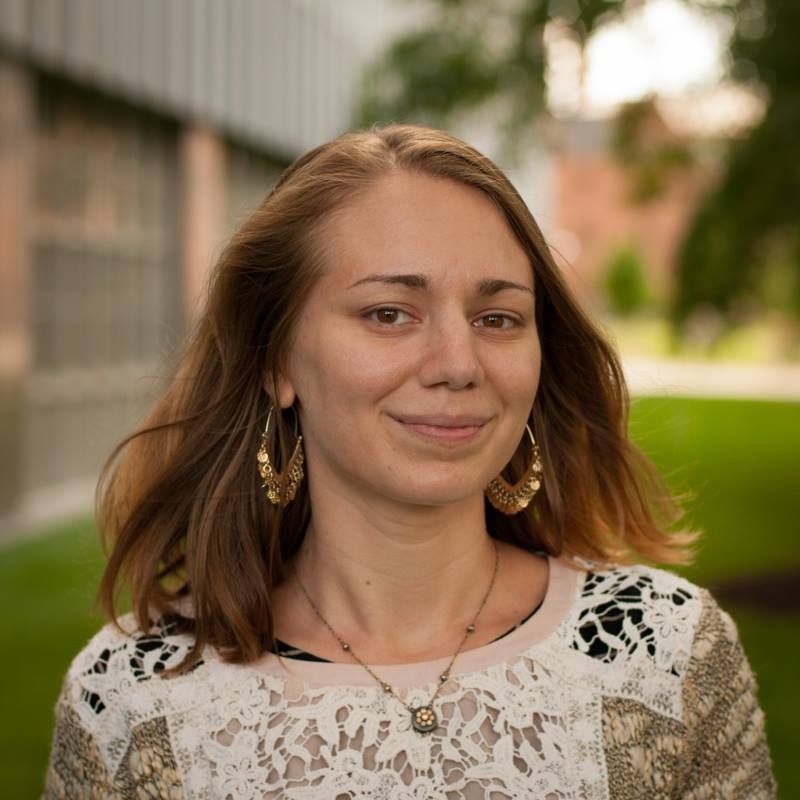Considering that our campus is situated in a city known for its academic giants, it can be daunting going to the only public school in our area. It is difficult not to feel like the underdog when all the private school kids are usually hooked up with money, connections, and plentiful opportunities.
But Cady Vishniac, a recent Umass Boston graduate and recipient of a major fiction writing prize, serves as a reminder that skill, hard work, and dedication are not traits exclusively for college graduates with big name degrees.
During her undergraduate studies here at Umass Boston, Vishniac majored in English with a minor in professional writing and another in creative writing. She was a hard worker, managing to complete two theses, while being involved in the English tutoring program as well as the Mass Media as a writer, news editor, and eventually editor-in-chief.
Although she managed to make the most of her undergraduate career and is happily settled into her MFA in fiction writing in another state, Vishniac feels for the struggles that undergraduates at Umass go through.
“It’s so, so hard, isn’t it? You have to deal with these very strict requirements put in place by the state – and we all know, right, that the students at Harvard get way more slack when it comes to international diversity credits or whatever – and you have to deal with your overfull course schedule and your job or jobs and your teachers who think you didn’t do the assignment because you’re lazy,” Vishniac said.
But while Vishniac went through the same perilous journey through higher education as everyone else, she kept her eyes open for opportunities to not only get her work out there, but to grow as a writer as well.
She found out about the Alexander Cappon Prize when checking out The Writer’s Chronicle, which anyone can usually pick up at the English Department common area on the sixth floor of our very own Wheatley building. She noted that many of the listings were free to apply for.
Vishniac was careful about what she submitted, however.
“There’s this myth of a brilliant writer who gets everything down in one sitting and it’s perfect and someplace fancy publishes it right off the bat – and that’s happened to me a couple times with flash fiction, once even with poetry – but it’s not typical, and you’ll drive yourself crazy trying to turn out perfect first drafts,” Vishniac said.
She said that the key to successful writing was being willing to put one’s ego aside and workshop and edit as much as possible.
“Basically, my process consists of getting over myself, showing people my rough, unfinished, embarrassing stuff, and asking them for a brutally honest opinion. Then I spend a month really mulling over what they told me, editing and editing. Then I show someone else and do it again,” she said. “This is the only process that works for most people I’ve met: coming to the writing with humility and letting the writing take several months per short story, if it has to.”
Serving as a perfect representative of Vishniac’s point, her winning short story began as one about a young Haitian man struggling with feelings of alienation in most elements of his life, but morphed into something Vishniac could speak to from personal experience after recommendation from a friend. Ultimately, her story took on the experiences of a Modern Orthodox Jewish women taking steps to change her life as others looked on with envy.
Vishniac’s interest in such relatable experiences stem from her overall hopes for her writing.
“For me, the writing is about enhancing the human experience of my readers – not necessarily just making them happy…but I want to be good for people; to challenge them, to communicate certain ideas about the whimsy of the world, even though the world is actually pretty scary, and about [sic] human worthiness, even though humans often fall short of their best selves.”
Vishniac felt that feelings of isolation and being overlooked in particular are common for students at Umass Boston. Since our student body is uniquely diverse in ethnicity, financial status, and place in life, it can be difficult to feel taken seriously.
But Vishniac offers this as consolation:
“It’s a schlep, with guarantee of a payoff, and if you’re a nontraditional student or a parent, as I was, then some folks will just write you off. If I could tell UMass Boston students anything, it would be this: F*ck the haters, you are valuable. You get to take yourself seriously.”
UMass Boston Graduate Receives Literary Recognition
September 11, 2015





















































